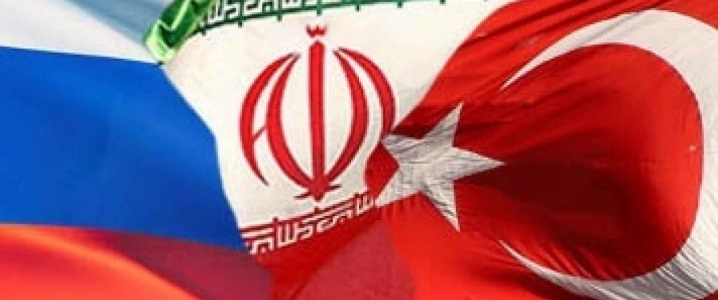Russia-Iran-Turkey Alliance Could Change Energy Dynamics For Good

A new strategic axis is forming in the Middle East, and this axis could play a transformative role in the region, upsetting the longstanding balance of power. Ankara has apologized to Moscow for the shooting down of a fighter plane last year. Iran and Russia have both condemned the July coup attempt in Turkey. The three countries are now negotiating a joint involvement in Syria. That’s a powerful alliance of two major oil nations, and one country that sees itself as a major energy hub.
Turkey’s turn to Moscow in the wake of the 15 July coup attempt by the military was taken by many to be an emotional or at least demonstrative gesture prompted by allegations that the U.S. was involved in the event. Ankara claimed the coup was organized by Fethullah Gulen, an exiled scholar living in the U.S.
Some Turkey experts, however, argue that this thawing of relations between Ankara and Moscow (and Tehran) and the cooling off between Europe and the U.S. is a carefully thought-out strategy.
Turkey’s resentment towards the European Union is nothing new. Erdogan has been vocal about his negative reactions to some requirements in Turkey’s EU accession process. He is also in a position to pull the strings on much of Europe’s migrant policy, and is making good use of this position. What Turkey’s President has made even better use of is the anti-Western rhetoric and the visions of a “great-again” Turkey. The former has been instrumental in diverting public attention away from a lawsuit in Italy against his son for money laundering.
Apparently, the Greater Turkey vision cannot be realized with the EU constantly demanding things from Ankara that Ankara does not want to do, such as synchronizing its anti-terrorism policies with the EU, for example. It can, however, be realized if Turkey gets on the anti-West bandwagon driven by Russia and Iran, both survivors from Western sanctions, and both having their own regional ambitions.
Turkey has already made the first step in distancing itself from its current allies, and this step was the purge Erdogan launched following the coup, which, as political scholar A. Kadir Yildirim notes, has led to the removal of almost half of the senior officers in the army, most of them pro-NATO. This is a clear sign that the country, which boasts the second-largest army in the alliance, is on a divergent course.
The second step is the talks with Moscow and Tehran on a range of topics, including Syria. Back in June, straight after Erdogan apologized for the Russian plane shooting, Russia and Turkey resumed talks about the Turkish stream project, which will transport 63 billion cubic meters of natural gas annually. With Russia and Turkey acting together, Europe will have little left to do but continue to be dependent on energy coming from countries it doesn’t really like and cannot really influence in a favorable direction. Russia has the oil and the gas, and Turkey has the pipelines and the Bosphorus, where 3 percent of global oil exports pass every day.
Add to the equation Iran, with its own huge oil and gas reserves, and willing—just like Turkey—to overlook their differences in opinion on Bashar Assad, and a new picture of the Middle East emerges. A picture where Saudi Arabia’s (and its ally, the U.S.) strategic interests will no longer be the tone-setting ones in the region.
This picture, it’s worth noting, is not a given. Foreign policy is dynamic, priorities change, so the new three-way partnership is not yet sealed. If it becomes a reality, however, it can cause much headache for geopolitical planners in the West.
Related News
Related News

- Keystone Oil Pipeline Resumes Operations After Temporary Shutdown
- Biden Administration Buys Oil for Emergency Reserve Above Target Price
- Freeport LNG Plant Runs Near Zero Consumption for Fifth Day
- Enbridge to Invest $500 Million in Pipeline Assets, Including Expansion of 850-Mile Gray Oak Pipeline
- Williams Delays Louisiana Pipeline Project Amid Dispute with Competitor Energy Transfer
- Evacuation Technologies to Reduce Methane Releases During Pigging
- Editor’s Notebook: Nord Stream’s $20 Billion Question
- Enbridge Receives Approval to Begin Service on Louisiana Venice Gas Pipeline Project
- Russian LNG Unfazed By U.S. Sanctions
- Biden Administration Buys Oil for Emergency Reserve Above Target Price




Comments